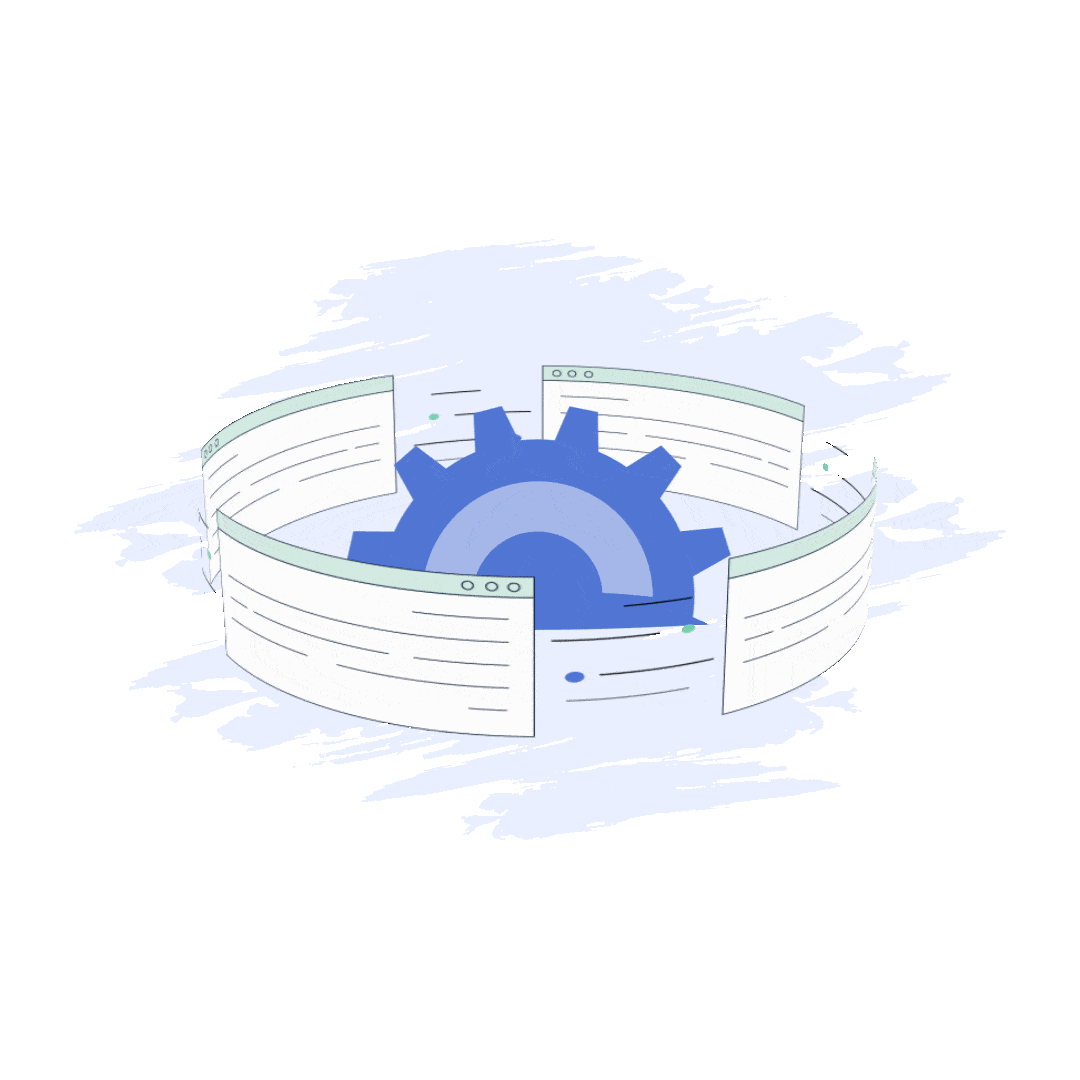Why Zamp?
Combining technology and help from sales tax experts is a game changer.
We do the heavy lifting, so you don’t have to.

Fully Managed Solution
Stressing over sales tax is a thing of the past. All you do is click approve, and we handle the rest. You'll always be up-to-date and sales tax compliant.

Developer Friendly Sales Tax API
Connect your existing e-commerce, marketplace & ERP systems within minutes, and use Zamp’s API for roof-top accurate sales tax calculations.

One Price
One simple price that scales with your business. No overages, no hidden fees, no surprises.
Ecommerce API
- What Ecommerce APIs Do in Online Retail
- How Ecommerce APIs Help with Sales Tax Compliance
- The Dangers of Dropping the Ball on Sales Tax in Ecommerce
- Key Features of Sales Tax APIs for Ecommerce
- Benefits of Integrating Sales Tax APIs into Ecommerce Platforms
- Tackling Tax Rates and Jurisdiction Complexities
- The Future of Sales Tax APIs
- Ecommerce API FAQ
Ecommerce APIs are a big deal in the digital shopping world. They’re like the secret sauce that makes everything run smoothly. They help various software and ecommerce systems talk to each other, which is super handy for things like integrating services seamlessly. They're especially key when it comes to handling sales tax; ensuring everything is on the up and up with laws and regulations, and really just making life easier for online stores.
What Ecommerce APIs Do in Online Retail
In simpler terms, ecommerce APIs set the ground rules for building and blending different software applications. This makes it possible for online shops to hook up with outside services—like payment processors, shipping handlers, and sales tax calculators. These connections are crucial for automating the more complex parts of running an online store, which in turn cranks up the efficiency and reliability of the whole operation.
How Ecommerce APIs Help with Sales Tax Compliance
Getting sales tax right isn't just good practice for online retailers; it's the law. Ecommerce APIs come equipped with smart tools that automatically figure out the right tax rates based on where the customer lives and what they're buying. Sales tax automation makes the whole tax calculation process a lot smoother, keeping stores in line with local and national tax laws and protecting them from any legal troubles.
The Dangers of Dropping the Ball on Sales Tax in Ecommerce
Not managing sales tax well can backfire big time. Get it wrong, and you might end up underpaying or overpaying taxes, which could lead to sales tax audits or fines. By using APIs wisely, businesses can make sure they're collecting and handing over the right amount of sales taxes, dodging financial and legal bullets along the way.
Let's dive into the cool features of sales tax APIs that make them a must-have for ecommerce businesses. From automating tax calculations based on where your customers are and what they're buying, to keeping up with tax law changes without you lifting a finger, and even offering in-depth reports—it's all about making tax compliance as painless as possible.
Key Features of Sales Tax APIs for Ecommerce
One of the slickest things about sales tax APIs is their ability to crunch the numbers on taxes automatically. They look at your customer's state and city and what they're purchasing to figure out the exact tax to add. This means you get spot-on accuracy every time, without having to do any of the heavy lifting yourself.
Stay Up-to-Date with Real-Time Tax Updates
Tax laws change—often—and it can be tough to keep up. That's where sales tax APIs step in. They update tax rates and rules as soon as they change, which means your business is always on the mark with the latest info. No more digging through the latest tax laws.
Seamless Integration with Your Ecommerce Setup
Sales tax APIs play nice with a whole bunch of ecommerce platforms, whether you're using Shopify,Stripe, BigCommerce, or something else. They fit right into your existing setup, weaving tax calculations directly into your sales processes without messing up your workflow.
Powerful Reporting Tools to Keep You in the Know
But it's not all about calculating taxes. Sales tax APIs also come with powerful reporting and analytics tools that give you a clear picture of your tax situation. These tools help you keep track of everything, make sense of tax trends, and even forecast future tax duties. It's all about giving you the insights you need to manage taxes smarter.
Integrating sales tax APIs into your ecommerce platform has a bunch of big wins—from sticking to tax laws, making checkout smoother, to keeping your data safe. Here’s the lowdown on why these tools are game-changers.
Book a call today
We'll answer all of your sales tax questions & address any of your concerns to ensure that you never have to worry about sales tax again-
1Book a free 30 minute call
-
2Meet with one of our experts
-
3Get sales tax off your plate
Benefits of Integrating Sales Tax APIs into Ecommerce Platforms
Staying on the Right Side of Tax Laws
Sales tax APIs are like your personal tax navigators. They're tuned to manage tax rates and follow the rules across various regions, which slashes the risk of getting tangled in legal troubles due to non-compliance or issues with economic nexus. With automatic updates that reflect the latest tax laws, your business stays in line, even as regulations change.
Speeding Up Checkout for Happier Customers
Nothing bogs down shopping like a clunky checkout process. Sales tax APIs speed things up by automating tax calculations, cutting down the steps customers need to finish up their purchases. This means quicker transactions, fewer hiccups, and a smoother shopping experience that could turn first-timers into regulars.
Cutting Down on Admin Hassles
Calculating sales tax by hand? That's old school—and not in a good way. It’s a drag on your time and prone to mistakes. Sales tax APIs handle the math for you, lightening the load on your team and slashing the chance of errors. This frees up your folks to focus on bigger, better things, boosting your business's operational efficiency.
Dodging Audits and Fines
Getting sales tax right with APIs means less worry about audits and penalties. These systems keep detailed records of all your transactions and tax calculations, ready to show you're playing by the rules if the tax folks come knocking. This kind of transparency can save you a lot of headaches and cash by steering clear of fines linked to tax mistakes.
Boosting Security and Building Trust
Sales tax APIs aren’t just about numbers; they’re serious about security. With top-notch measures to protect your financial data, they meet strict privacy standards, helping to build trust with your customers—super important in an age where data breaches are all too common.
All in all, bringing sales tax APIs into your ecommerce setup not just simplifies dealing with taxes and reduces the workload—it also enhances your store's reliability and the shopping experience. It’s a solid move for growing your business and keeping customers coming back in the competitive online retail space.
While sales tax APIs bring a lot of perks to the table, there are still a few hurdles to clear when setting them up and getting them to run smoothly.
Tackling Tax Rates and Jurisdiction Complexities
The maze of tax jurisdictions and rates can be tough to navigate since they vary widely by region and even by product type. Crafting a smart strategy is key, and sometimes you might need to bring in tax pros to make sure you’re setting everything up correctly and staying compliant.
Handling the Legal Side of Interstate Sales
When you start selling across state borders, each one has a whole new set of state tax laws to deal with. It’s crucial to get a handle on these legal requirements to avoid issues and kee interstate sales ticking along smoothly.
Keeping Data Secure
Dealing with sensitive customer and transaction data means you’ve got to be on your toes about privacy and security. Sales tax APIs need top-notch security to prevent data breaches and keep customer info safe, which helps maintain trust and meet privacy standards.
Choosing the Right Sales Tax API Provider
Picking a sales tax API provider is a big decision. You’ll want to look at how well they can mesh with your existing systems, the level of customer support they provide, their security measures, and their compliance capabilities. The right choice can make a huge difference in how well your tax processes run.
The Future of Sales Tax APIs
Integrating sales tax APIs into your ecommerce setup does more than just streamline operations—it boosts compliance, enhances the customer experience, and solidifies your business foundation. Here’s a sample of some of Zamp’s most popular integrations:
- Stripe Sales Tax API Integration
- BigCommerce Sales Tax API Integration
- Shopify Sales Tax API Integration
By embracing these advanced tools, you can significantly ease the burdens of sales tax management in the digital age.
Moving forward, it’s important for ecommerce businesses to keep learning and to work with tax experts to stay ahead in the changing tax landscape. We encourage all online merchants to adopt robust sales tax management practices to safeguard and grow their businesses in our increasingly digital world.
Book a call today
We'll answer all of your sales tax questions & address any of your concerns to ensure that you never have to worry about sales tax again-
1Book a free 30 minute call
-
2Meet with one of our experts
-
3Get sales tax off your plate
Ecommerce API FAQ
Sales tax APIs are tools that automate the calculation of sales tax rates based on the customer's location and the types of products they're buying. They help ensure accuracy and compliance with tax laws, streamline the checkout process, and reduce the administrative burden associated with manual tax calculations.
When selecting a sales tax API provider, consider their integration capabilities with your existing ecommerce platforms, the quality of customer support, their security features, and their ability to meet compliance needs. It’s important to choose a provider that fits well with your specific business requirements.
Sales tax APIs contribute to a smoother checkout process by automating the tax calculation, which reduces the number of steps a customer must go through. This speeds up the transaction, minimizes errors and delays, and generally enhances the customer's overall shopping experience.
While sales tax APIs are generally very secure, they do handle sensitive customer and transactional data, which makes them a potential target for data breaches. Ensuring that your chosen API has robust security measures in place is crucial to protect your data and maintain customer trust. Additionally, businesses must stay proactive in updating and maintaining their API integration to cope with any changes in tax laws and ensure ongoing compliance.
- What Ecommerce APIs Do in Online Retail
- How Ecommerce APIs Help with Sales Tax Compliance
- The Dangers of Dropping the Ball on Sales Tax in Ecommerce
- Key Features of Sales Tax APIs for Ecommerce
- Benefits of Integrating Sales Tax APIs into Ecommerce Platforms
- Tackling Tax Rates and Jurisdiction Complexities
- The Future of Sales Tax APIs
- Ecommerce API FAQ
Book a call today
We'll answer all of your sales tax questions & address any of your concerns to ensure that you never have to worry about sales tax again-
1Book a free 30 minute call
-
2Meet with one of our experts
-
3Get sales tax off your plate


